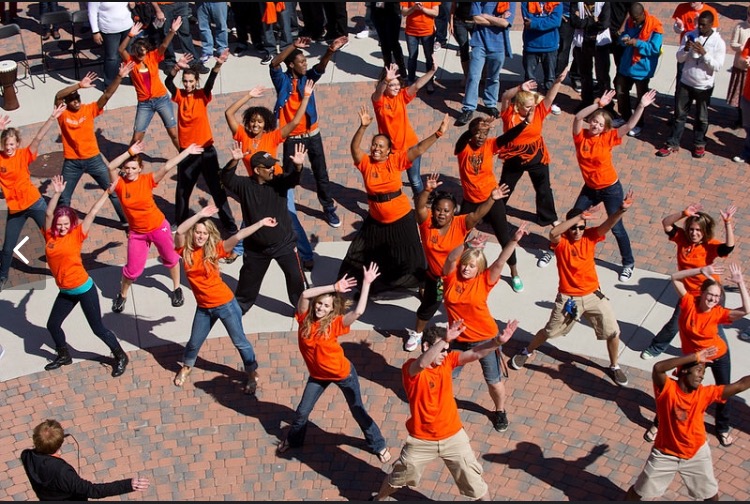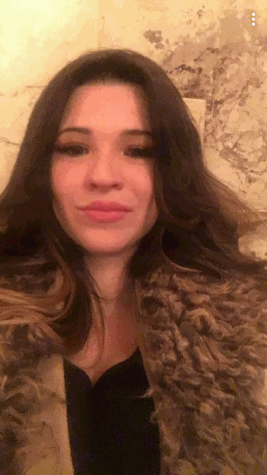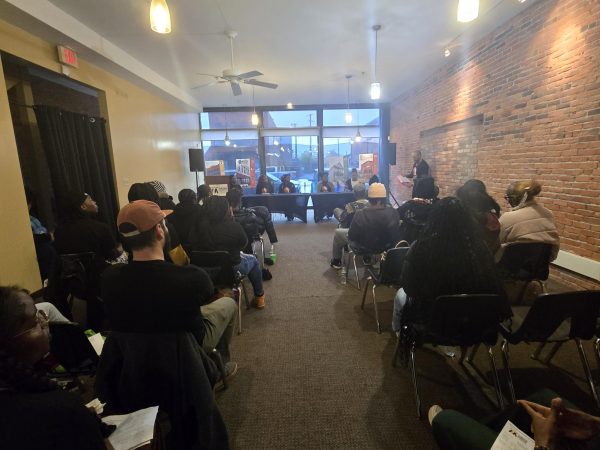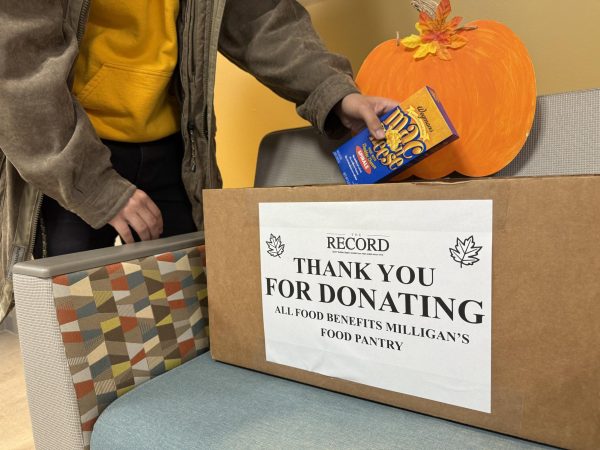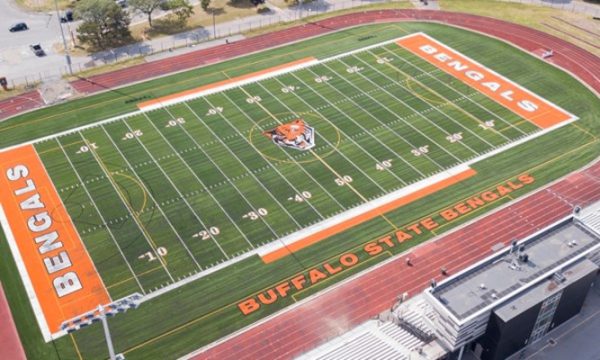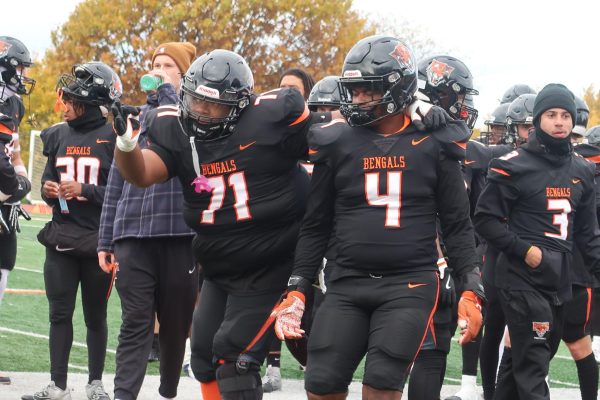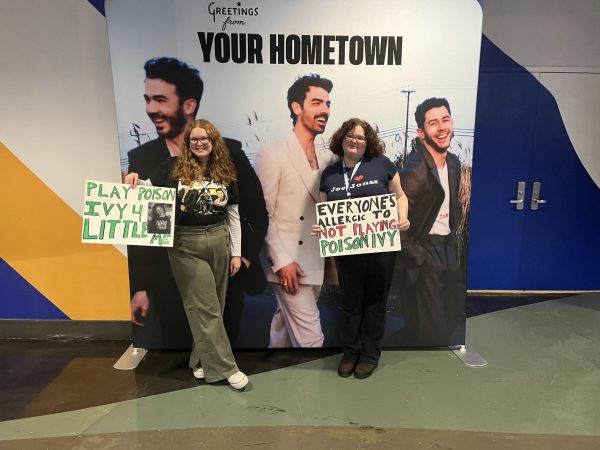The Anne Frank Project hosts 9th annual Social Justice Festival
“Muraho,” means “I celebrate your presence.” Professor Drew Kahn, Director of The Anne Frank Project (AFP) says with this one word, the ethic of AFP is revealed. On October 3 and 4, Buffalo State is celebrating in its 9th annual Social Justice Festival, orchestrated by AFP.
Each year the festival hosts international and local artists, performers, and authors, sharing their stories, and engaging in an exchange of ideas. Although the theme varies each year, the presentations must represent the three pillars of AFP in some form using storytelling for community building, conflict resolution, and identity exploration, inspired by the wisdom of Anne Frank. Many students can attest to the personal catharsis they experience during presentations in the festival.
The reasoning behind AFP titling this two-day event as a festival and not an academic conference, is because it goes far beyond presentations followed with a Q&A session. Almost a years’ worth of preparation goes into the festival. Each presentation is carefully selected based on the ability to actively engage its participants in a kinesthetic form of learning.
“We don’t need another academic conference, we want you to be up on your feet, doing,” said Kahn, “This generation wants to do, and not just talk.”
Kahn references a Chinese proverb to better explain the reasoning behind this requirement,” Tell me and I will forget, teach me and I will remember, involve me and I will learn.” Kahn says,” We are the third line. We want real learning to happen.”
For 9 years, every fall, AFP has been presenting, challenging, and celebrating with the community on the Buffalo State College campus. The festival is free and all are welcome. Kahn credits Buffalo State for its celebration of diversity and multiculturalism.
“Buffalo State is not how the world is, it’s how the world should be,” said Kahn.
Sophia Veffer is the only recurring presenter, of all 9 years. “She is a big part of the fabric of The Anne Frank Project,” said Kahn. Veffer is a survivor of the Holocaust, from the Auschwitz concentration camp. Veffer also knew Anne Frank personally, as a class mate and friend.
The annual social justice festival all stemmed from a Buffalo State production of “The Diary of Anne Frank,” in 2006. Kahn directed the performance, and pioneered an idea to make the play more inclusive to the Buffalo State audience. Given that the college houses a number of different nationalities, Kahn didn’t think it was right to only represent students of a European dissent. After extensive research, Kahn felt that the story of the 1994 Rwandan genocide had never been given the attention it deserved.
“We had two Anne Frank’s, a Jewish Anne Frank, and a Rwandan Anne Frank, sharing the diary. Making the point that there is an Anne Frank in every genocide, in every conflict, in every oppression. We could have had fifty Anne Frank’s up there: Syria, Nepal, Burma, the Congo,” said Kahn, “How many diaries do we not have? And that’s a crime. We want to make sure that the voices of those who are the most innocent are heard.”
Eve Everette who played one of the two Anne Frank’s, explained the visceral reaction that came from the production.
“Never again in the 40’s, never happened. Never again, never happened. We’ve been so busy with mass atrocities, and genocides. And so, surfacing the fact that Rwanda happened in 1994, 50 years later, it’s so tragic to have that story there. Because you just know that the world is still continuously destroying the lives of young people,” said Everette.
The powerful reaction that came from the production, birthed the idea for an annual festival to embrace the power of sharing stories, and celebrate our shared humanity.
Since 2006, The Anne Frank Project and its mission has evolved on an enormous scale. The expansion and necessity for AFP on a Global scale called for an assistant director for the project.
Everette shares the tale of her unique cyclic evolution in her involvement in AFP. She began as an actress, inspired, while working in the 2006 production. When she left Buffalo State, she went to the Royal Conservatory of Scotland for Graduate school. It was at RSC that the concepts of creating theater, collaboration, and sharing stories of oppression were blown wide open. During her education across the world, she kept in touch with her mentor, Kahn.
“Eve left, and always threatened to come back,” said Kahn.
After graduation, Everett found herself back in Buffalo. “I love buffalo. I think it’s a hot bed for really unique ideas to bring people together.” “I felt like it was a responsibility to come back and serve the city that helped me figure out who I was.” Everette says. After a rigorous application process, Everette was chosen by a hiring committee as the official Assistant Director of AFP.
AFP provides a number of services on a local, national, and international level. Several SUNY campuses across the nation have embraced the AFP.
Twelve students are selected each year to travel as a part of the AFP to Rwanda and partake in their teacher training program, which ultimately reaches some 40,000 people. Globally, AFP has shared their aspiration to expand the project from Rwanda to other areas ravaged by oppression such as Vietnam, Haiti, the Congo and Burma.
Students returning from Rwanda register for THA 470. Where they create an ensemble theater piece, based on their experiences, and tour it to local schools. AFP provides a number of services to local schools and communities, such as tools and vocabulary for conflict resolution through story-telling.
Everette explains the importance of AFP’s work, “The work that we do requires people to practice responsibility, self-love, and love for their community, in that microcosm of a story building world that we set up. And the idea is to practice it there, and hear it there, and feel it there, so when you leave you can apply it to your classrooms, to your neighborhoods, to your families. So, it’s starting small. Starting with young people and letting them know that they matter is incredibly important in communities,” says Everette.
There are several ways for a student to become involved with AFP. One is partaking in the annual trip to Rwanda, of which there is an informational meeting on Friday, October 6 at 1 pm in Butler Library room 210.
Another would be to propose a presentation for the next year’s festival. Applications are accepted in January or February.
The quickest and easiest way to get involved would be to become a volunteer during this year’s festival, October 3 and 4. Volunteers are accepted throughout the entire duration of the festival.
Volunteer Registration can be filled out online at https://buffalostate.wufoo.com/forms/z1cdhoos06uhf3p/. In doing so, all volunteers receive and official AFP orange shirt.
Everette encourages students “to put on that orange shirt and step out of your comfort zone and be a leader, and help others get involved.”
“Our students are magic. Our students are visceral. Our students are engaged. And our students are filled with light. So, when you come to campus, if you’re looking for light on October 3rd and 4th, they’ll be in the orange shirts,” said Kahn.
AFP implores Buffalo State students and all members of our community to partake in this year’s Social Justice Festival.
“Offer hope and practice loving each other, sharing stores, and learn how to have difficult conversations in a respectful manner as a catalyst for change,” said Everette.
More information about AFP can be found on their website: http://www.annefrankproject.com/.


